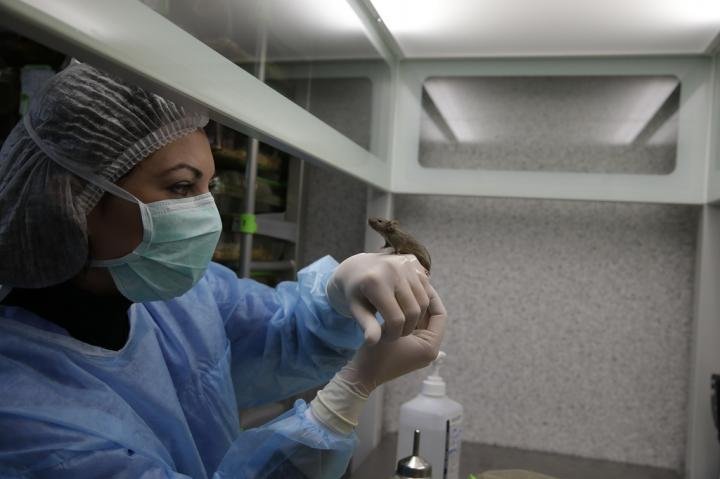Researchers at Moscow State University and the University of Stockholm collaborated on a study that used a synthetic compound to slow the aging process in genetically modified mice. Photo by The A.N. Belozersky Institute Of Physico-Chemical Biology
Feb. 17 (UPI) -- Researchers from Lomonosov Moscow State University have developed a new compound that showed potential in slowing the aging process in lab mice.
The team from Moscow State University collaborated with scientists from Stockholm University in Sweden to create the artificial antioxidant SkQ1 targeted in the mitochondria of genetically modified mice.
Researchers introduced a single genetic mutation into the genome of the mice to induce accelerated mutagenesis in mitochondria, which leads to accelerated aging and early death in the mice. The genetic mutation induces the development of many age-related diseases.
At 100 days old, one group of mutant mice was treated with small doses of SkQ1 in their drinking water while a control group of mice received pure water.
Researchers observed that animals in the control group, not treated with SkQ1, began to age rapidly at 200 to 250 days and showed symptoms of weight loss, body temperature decrease, severe curvature of the spine and alopecia. The mice given SkQ1 showed dramatically decelerated aging symptoms and some aging traits did not appear at all.
"This work is quite valuable from both theoretical and practical points of view," Professor Vladimir Skulachev of Moscow State University, creator of the SkQ1 molecule and co-author of the study, said in a press release. "First, it clearly demonstrates the key role of mitochondrially-produced reactive oxygen species in the process of aging in mammals. At the same time our study opens the way to the treatment of aging with mitochondrially-targeted antioxidants."
The study was published in the journal Aging.















